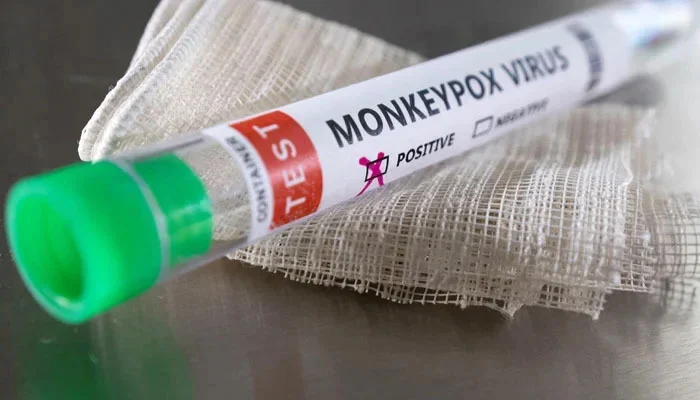A new case of monkeypox has been confirmed in Pakistan, identified in a 42-year-old male labourer from Attock district who recently returned from a Gulf nation. According to federal health authorities, the man arrived at Islamabad International Airport on August 15, where Border Health Services personnel observed visible symptoms, including body rashes and fever. He was immediately referred to the Pakistan Institute of Medical Sciences (PIMS) for evaluation and isolation, preventing potential contact with the general public.
The patient’s case history reveals he had been suffering from an undocumented fever for eight days while still abroad, with papules appearing on his face and body five days before his flight to Pakistan. Laboratory tests conducted at the National Institute of Health (NIH) confirmed the monkeypox infection on August 18. Health officials reported that the patient is now under strict home isolation, with his condition being closely monitored. It was also disclosed that he had been in contact with a confirmed monkeypox case in the Middle Eastern country prior to developing symptoms.
This incident has raised concerns about the disease being imported through international travel, prompting an immediate government response. The Ministry of National Health Services has directed all provincial health departments to strengthen surveillance measures and ensure rigorous screening of inbound travelers at airports and other points of entry to prevent any further spread within the country.
While Pakistani officials insist there is no current evidence of local transmission, the confirmation of this case comes amid increasing international alerts about a resurgence of monkeypox in several countries. Health experts are cautioning that timely detection, isolation, and rigorous contact tracing are critical to preventing community spread. The public has been advised not to panic but to seek immediate medical attention for any unexplained fever and skin lesions, particularly following international travel.














